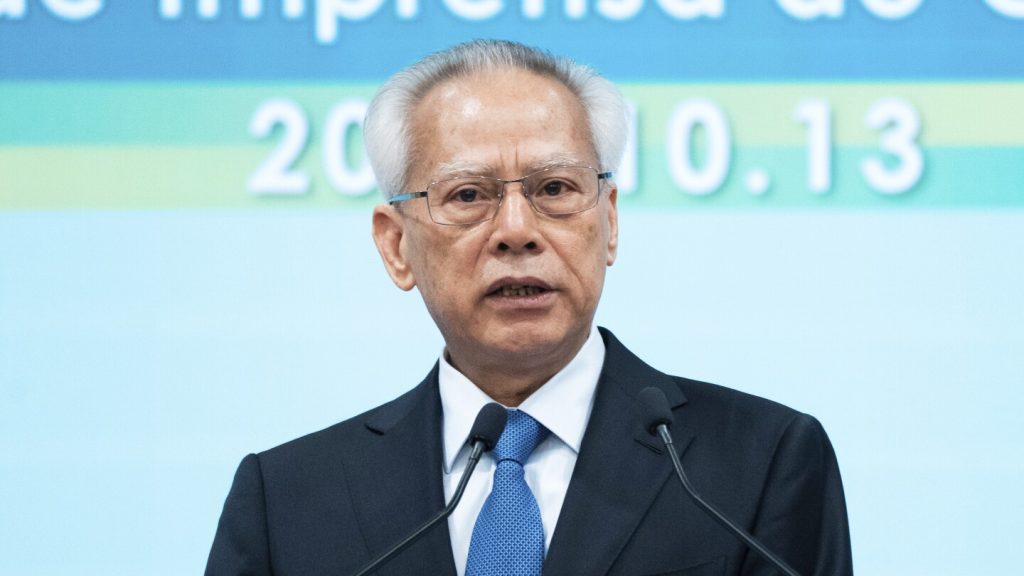Macao, a Chinese casino hub, has chosen its next leader in a largely ceremonial election, with Sam Hou Fai being selected as the city’s first chief executive born in mainland China. The election committee, which consists mainly of Beijing loyalists, voted overwhelmingly for Sam, who is from a legal background. This shift in leadership is expected to reduce the influence of business circles in the city, with a focus on Beijing’s policy agenda for Macao.
Sam, 62, has received endorsements from influential figures in the election committee, solidifying his position as the chief executive-elect. He has pledged to uphold national sovereignty, accelerate economic diversification, and better integrate Macao into China’s national development plans. His inauguration is expected to take place in December, coinciding with the 25th anniversary of Macao’s handover to Chinese rule. Following the election, Sam received congratulations from various officials, including China’s Hong Kong and Macao Affairs Office and the current city leader of Macao.
The lack of voting rights for most of Macao’s residents has led to mixed sentiments about the election. While some hope that Sam will prioritize public opinion over business interests, others feel disconnected from a process in which they are unable to participate. Despite Sam’s non-local origin, many residents are comfortable with the diverse population of the city, which has been home to migrants for decades. The challenges for Sam lie ahead in governance hurdles, particularly in diversifying the city’s economy, which is heavily reliant on the gambling industry.
Macao is the only place in China where casino gambling is legal, and Beijing has called for the city to diversify its economy away from gambling. Sam has promised to boost tourism and other sectors, but the city will still need revenue from the gambling industry to support its welfare and other goals outlined by Beijing. Chinese tourists spending less in Macao and local businesses being affected by residents spending money in neighboring cities present pressing issues for the new leadership. Sam emphasizes the importance of actively participating in China’s development plans, such as the Greater Bay Area integration.
With a lack of government leadership experience, Sam faces the challenge of forming a capable cabinet to address social and economic problems in Macao. The seafood restaurant operator, Ip Weng U, expresses hope that Sam will be able to tackle these issues effectively. Sam’s background as a judge, his education in law both in China and Portugal, and his experience as the city’s top judge for nearly 25 years provide a strong foundation for his leadership. Sam’s handling of politically sensitive cases, including those related to pro-democracy figures, highlights his previous decisions as a judge. He emphasizes the need for the government to play an active role in decision-making to enhance Macao’s development.


